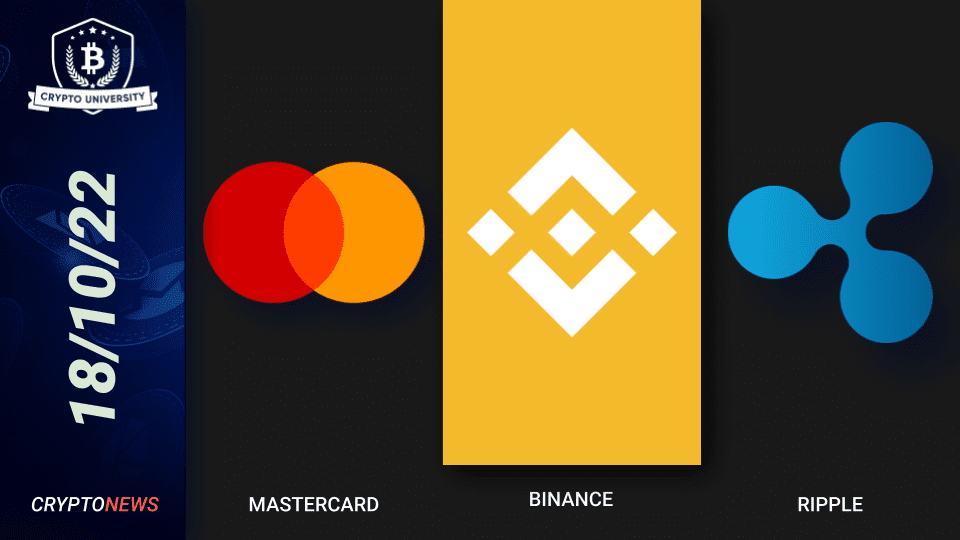MasterCard Launches Crypto Source
Mastercard, the giant payments processing company, is debuting a service offering crypto-trading tied to bank accounts. The product is called Crypto Source and will launch as a test program in the United States, Israel, and Brazil. MasterCard has not revealed which banks would be the first to take part.
“At Mastercard, trust is our business. What we are announcing today is a connected approach to services that will help bring users safely and securely into the crypto ecosystem,” said Ajay Bhalla, President, Cyber & Intelligence at Mastercard.
Mastercard recently acquired CipherTrace and Ekata. CipherTrace and Ekata are crypto companies that provide Mastercard with a unique set of capabilities. They also help it provide customers and consumers with the most technically advanced solutions available in the cryptocurrency market.
Binance $500M Mining Lending Project
Binance Pool, a subsidiary of Binance, is launching a $500 million lending project to help support cryptocurrency miners. To qualify for a loan, applicants must be Binance VIP members. The loans are set at a 5 – 10% interest rate and are repayable over 18 – 24 months.
“As one of the world’s leading crypto mining pools, Binance Pool has a responsibility to help maintain a healthy digital asset ecosystem. In light of current market conditions, Binance Pool is also launching a $500million lending project to support crypto miners and digital infrastructure providers,” wrote Binance in an official blog.
Binance Pool will also introduce cloud mining solutions, acquiring cloud mining hashing power directly from Bitcoin mining and digital infrastructure suppliers.
Ripple Tests Ethereum Smart Contract Compatibility
Ripple, a blockchain technology company, is testing an Ethereum Virtual Machine (EVM) compatible sidechain on the XRP Ledger (XRPL).
“Our goal in 2023 is to have an EVM sidechain connected to the XRPL mainnet. The bridge in the final solution will be decentralized, and all components of the solution will be production ready to handle real-world scale and use cases,” said David Schwartz, Ripple’s Chief Technology Officer.
The EVM testnet is the first step in a three-part procedure. The second phase will begin in early 2023 when the EVM sidechain is permissionless. And the third phase will take place in the second quarter when Ripple completely installs the software.
